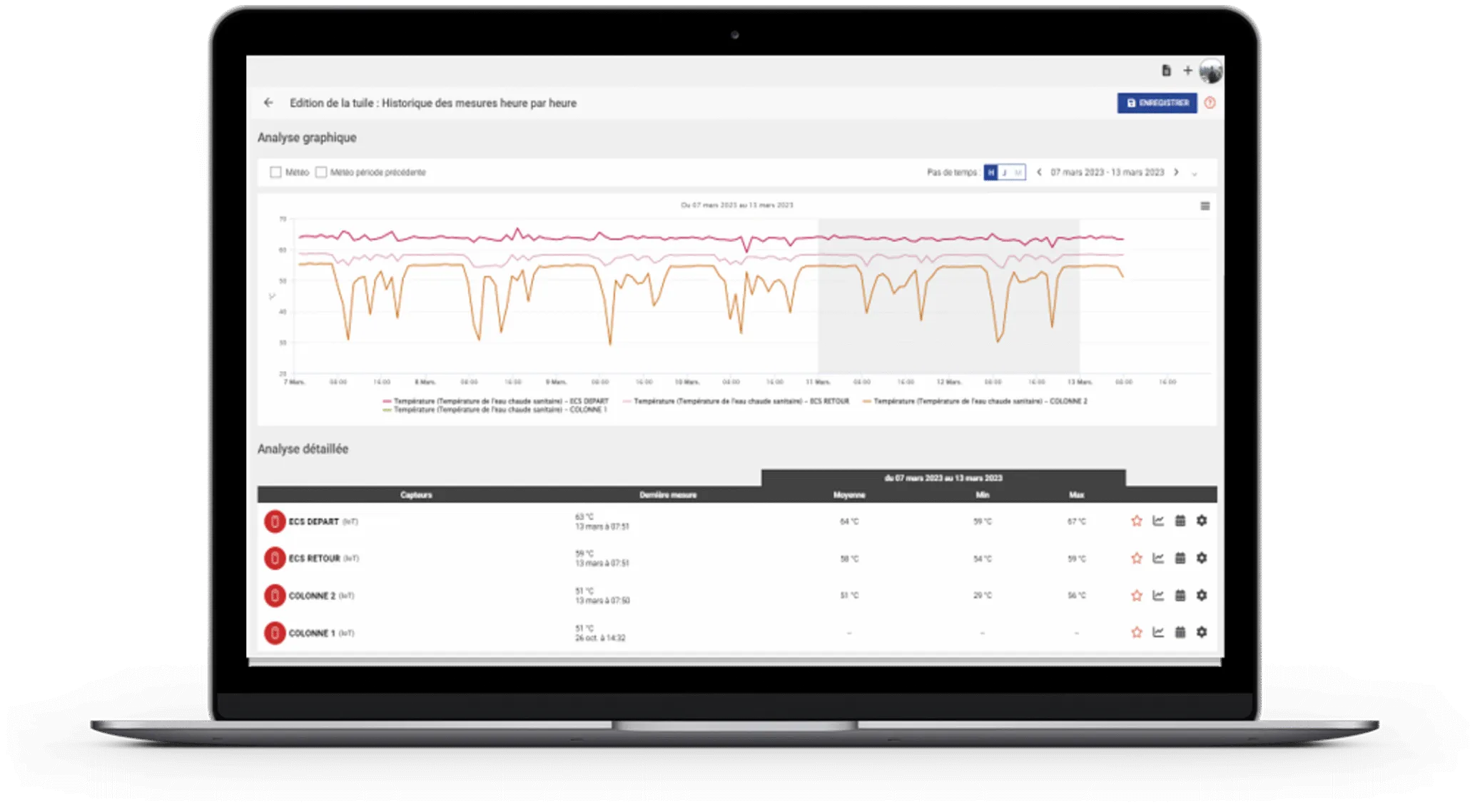Energy Manager: A Career of the Future


The role of Energy Manager has been growing rapidly in France in recent years. In the past few months, with the ongoing energy crisis, this profession has been thrust into the spotlight. What does the role of an Energy Manager involve? We take a closer look in our article.
As a consultant within a specialized service company, or integrated into a business or local authority, the Energy Manager is responsible for the strategy implemented to achieve energy savings within buildings. Their role is to monitor, analyze, propose, and deploy action plans aimed at improving the energy performance of buildings on a larger scale, such as across property portfolios.
Analyzing energy consumption data to understand the operation of buildings.
The first aspect of the Energy Manager’s role is to analyze energy consumption data for buildings. To do this, the expert relies on an energy management platform that collects all energy data (from suppliers, distributors, IoT) across a property portfolio and analyzes it. Using an energy management software tool allows the management of several hundred buildings, making it an essential tool for the Energy Manager. Based on this data, particularly load curves, and the usage of the buildings, the Energy Manager can identify consumption anomalies.
Data analysis is a crucial step in understanding usage patterns and anticipating future issues. By cross-referencing the information gathered through digital management tools, the Energy Manager can perform in-depth analyses that enable them to make targeted recommendations. This adds value to energy operations by maximizing potential savings and ensuring more efficient management of equipment.
The use of a digital application helps improve visibility across all consumption, while offering real-time control tools to better manage discrepancies or anomalies detected. As the person responsible for this management, the Energy Manager ensures that the buildings operate optimally, identifying major failures in the management of temperatures, energy flows, or water consumption.

Recommending relevant energy efficiency actions and prioritizing them.
The second aspect of the role is technical. The Energy Manager typically conducts engineering studies, specializing in energy, to understand the operation of various technical equipment within buildings. They perform numerous calculations to measure consumption and estimate energy savings. On-the-ground knowledge is also essential. To best support their clients when working with a consulting firm, the Energy Manager must visit the sites to more precisely identify the malfunctions within the buildings they are tasked with optimizing.
This on-site approach is crucial to ensure the effectiveness of the proposed measures. By analyzing the data collected, the Energy Manager can prioritize the interventions to be made and adapt them to the specific realities of the site. The actions implemented aim to ensure compliance with ISO standards and other applicable international regulations, thus enhancing the value of the interventions for businesses and local authorities.
Adhering to standards provides a guarantee of quality and long-term sustainability. The energy certification process also helps identify areas for improvement and ensures that all actions align with environmental and economic objectives.
Training all members of the project team to achieve the objectives.
Finally, the Energy Manager plays an important role in change management. They often act as the key liaison between various stakeholders in the company or local authority (facilities, technical, CSR) and their service providers, particularly maintenance teams. The Energy Manager must coordinate the different teams and help them understand the importance of implementing certain actions. They also need to have a strong understanding of regulatory goals and new measures that apply to their clients or organization in order to adapt the monitoring and energy strategy accordingly.
To ensure the success of the change management process, the Energy Manager must be able to effectively communicate the benefits of the actions taken. By adding tangible value to the projects (such as cost savings or improvements in environmental footprint), they motivate teams to achieve the objectives. This collaborative approach is essential to ensure that all stakeholders are engaged and involved in the implementation of the recommendations.
By working on various projects, the Energy Manager continuously evolves. Indeed, it is through experience and on-the-ground knowledge that they can quickly identify consumption anomalies and propose relevant energy efficiency actions.
The primary mission of the Energy Manager is to help you save,
both in kilowatt-hours and in euros!
A promising future for the Energy Manager profession.
The support provided by Energy Managers enables organizations in the public, tertiary, or industrial sectors to achieve up to 20% energy savings without requiring any construction work. As regulations have mandated for several years that businesses and local authorities reduce energy consumption in their buildings, and with the rising cost of energy, this profession is rapidly growing and holds a bright future ahead.
The increasing importance of digital tools, combined with the application of ISO standards, enhances the value of Energy Managers’ interventions, both nationally and internationally. These professionals are now essential for meeting the energy challenges of tomorrow and improving the performance of infrastructure.
Everything you need to know about the role of an Energy Manager

